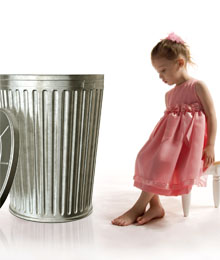Organ Donation: You Decide Where Your Organs Go
November 30, 2010 by Michael Hill
Filed under Health, Special Features
 In Ontario, someone on a waiting list for a vital organ dies every 72 hours. A tragic figure, especially when one organ donor can save up to eight lives and enhance up to 75 more. Right now, there are more than 1,500 desperate individuals on waiting lists in Ontario. These are mothers, fathers, brothers and sisters, and maybe, you. And guess what? There aren’t nearly enough donors.
In Ontario, someone on a waiting list for a vital organ dies every 72 hours. A tragic figure, especially when one organ donor can save up to eight lives and enhance up to 75 more. Right now, there are more than 1,500 desperate individuals on waiting lists in Ontario. These are mothers, fathers, brothers and sisters, and maybe, you. And guess what? There aren’t nearly enough donors.
When someone requires an organ transplant for a second chance at life, a whirlwind of medical tests and procedures sends families on an emotional roller coaster ride of despair and often enough, tragedy. At the age of 19, Eddie Sabat was diagnosed with hypertrophic cardiomyopathy, a condition where the muscle of the heart thickens and enlarges, making it difficult for the heart to pump blood. Sabat desperately needed a heart transplant to live a life he barely started. “There’s anger, frustration, nervousness. But when they told me that a donor was available it was almost disbelief to a certain extend,” explains Sabat. “I was in a blur.”
For Luciano DeBenedictis, this unforeseen hardship hit home when his father, Domenico DeBenedictis, was slapped with an expiry date on his life: doctors informed him that he had 12 weeks to live after being diagnosed with idiopathic fibrosis, an incurable lung disease that can only be reversed with a transplant. “This came as a complete shock,” says Luciano. “Weeks before my father was rushed to the emergency room at Toronto General Hospital, we celebrated the 68th birthday of a healthy man living an active life. While we waited, our whole hope and faith started to deteriorate as his time evaporated.”
Sabat and DeBenedictis were extremely lucky – both received organ transplants at the 11th hour. However, the vast majority of individuals requiring transplants can wait years before a donor is found – if one is ever found. Those waiting for a kidney, for example, can wait seven years or more before a donor becomes available. In fact, kidneys are the most sought-after organs in Ontario, and they are in limited supply.
Last year, 221 deceased donors accounted for almost 900 transplants in Ontario, but with 1,500 people on waiting lists, many are doomed to wait. “The tragedy is all these people’s lives can be saved if we had enough donors. And we don’t have enough donors in Ontario,” says Frank Markel, president and chief executive officer of Trillium Gift of Life Network (TGLN). Even if you are on the top of the list for organ donation there are no guarantees a donor will become available. A multitude of factors determines a recipient’s eligibility. Everything from blood and tissue type, organ size versus body size, urgency of patient’s illness, time on waiting list and even the distance between the donor and recipient all play a role in receiving an organ.
Organs are in such limited supply a range of tests and interviews are conducted before recipients are eligible to be placed on a waiting list. An entire panel must review your lifestyle choice and family support system to ensure that a recipient is a worthy candidate. Organs are rare and valuable commodities; they cannot be chanced on individuals who may potentially waste a transplant.
Ontarians seem to recognize the importance of organ donation, as TGLN reports 90 per cent of residents support organ donation; yet only 17 per cent are registered donors. Even more shocking: Toronto residents rank in the lowest bracket of registered donors, floating between four and 10 per cent in some areas. Compared to other major cities in Ontario, this figure is startlingly low: 25 per cent in Hamilton, 20 per cent in London, and 15 per cent in Ottawa. Towns in northern Ontario – like Sudbury and North Bay – have registration rates over 30 per cent.
The simplest way to register your consent is when renewing your health card at an Ontario Health Insurance Plan (OHIP) office. If you recently renewed your health card and did not register for organ donation, simply log onto the TGLN website (www.giftoflife.on.ca), download the consent form and submit it to the Ministry of Health and Long-Term Care. You can also download the form from the Ministry of Health’s website or the OHIP website.
As the crown agency for organ and tissue donation in Ontario, TGLN works tirelessly through advertising, schools and a multi-faith awareness campaign to foster a greater sense of community in a culturally diverse province. TGLN works with religious leaders from various communities. The majority of major religions – including, but not limited to, various sects of Christianity, Islam, Judaism and Hindu – all support organ donation.
Although public support is present, there are still fears that becoming a donor means you will not receive the same care as non-donors, which simply isn’t true. “I think we shouldn’t lose sight that we’re using tissues and even now cell therapy to prolong the lives of many, many people,” explains Dr. Gary Levy, medical director of the Multi Organ Transplant Program at Toronto General Hospital. “Transplantation is a great success story; a great medical success story. It requires the consent and participation of the public to make it a successful venture.”
As Dr. Levy points out, organ donation is a two-way street. Individuals must consent to becoming donors, and even then, strict criteria must be met before deceased individuals are considered for donation. In Ontario, families can veto your decision, so it is vitally important to stress the importance of your choice to become a donor with your family.
Several legislative attempts were made in the hopes of increasing donor rates but with little success. One example, Bill 67, was put forward by Newmarket-Aurora MPP Frank Klees, entailing Ontario drivers to declare their intent on becoming a donor or not when renewing their licence. However, this bill was faced with stark opposition.
There is the option of “soft-presumed consent” – the system used in Spain, where organ donation is the default option but families may still “opt-out.” After all, Spain leads the world in donor rates with 35 donors per million. Only 15 out of every million Canadians are organ donors. This number lags far behind other Western nations such as Austria (24), the U.S. (25), France (22) and Italy (21). But this method of presumed consent may be too forceful for a democratic nation like Canada.“I don’t think that fits very well in Canadian society,” comments Markel. “I think it has the possibility of being disruptive and Trillium doesn’t support it.” However, TGLN, along with Dr. Levy, believe the best way to increase donor rates among Canadians is through education. “I think what we need to do in our society is educate people that we’re not out to harm anyone. If the opportunity unveils itself, we’re just saying to the Canadian public [that] it’s an opportunity to be organ donors,” comments Dr. Levy. As one of the fortunate few, Sabat is unbelievably grateful that someone agreed to organ donation, giving him a second chance at life. “I have a wife and two wonderful kids and I wouldn’t be here without somebody consenting to organ donation and saving my life.”
Much like Sabat, DeBenedictis was also fortunate. He recently received a double-lung transplant hours away from death. “Obviously when you go through trauma and experience it, you start to open your eyes and educate yourself on how easy it is [to become a donor],” says his son Luciano. “It kind of opens your eyes to the shortage of donors there are in Ontario.”
In the end, organ donation saves lives. By using the opt-in approach, organ donation is always a choice made by the individual. Organ donation is an altruistic act: a decision not formed from obligation or duty, but from the goodness of your own heart.
Being opposed to organ donation is your choice, but know that the little parts that make us whole can rescue a baby that has yet to take its first steps, a teenager who hasn’t had his first kiss, or a mother who has yet to see her grandchildren born. Educate yourself to the benefits of becoming a donor and know that when you part from this world, you can continue thriving in others. “At times life throws us a curveball,” says Luciano, “and we can only give thanks to the individual who made the conscious decision to be an organ donor. That person has given my father the most precious gift – the gift of life.”
www.giftoflife.on.ca
1.800.263.2833









Great, great article… Keep up the go work educating people.
My Mom was recently put on the transplant list for a double lung transplant. She was in Toronto Friday March 1st for a followup appointment. No issues and she was on the list. On Tuesday March 5th just a few days later she was taken to St Catharines General Hospital having difficulty breathing. She needed to be put on the vent to help assist her breathing. We were told by the ER dr that they contacted Toronto and that she would have to be taken off the list if she is put on the support. We had no choice but to put her on support, she was strugling to breath. She did not have an infection, her lungs just got worse. How does her lungs getting worse take her off the list and not move her up the list. We are being told that until she is mobile she cannot have new lungs, and when she is mobile she can have her spot back on the list……..without those lungs she is not going to be able to be mobile. The longer she is on support the worse she is going to get. This does not make any sence to me! She needs lungs to live and spent years of testing and appointments to get approved for the tranplant. And now that her lungs are getting worse she is told no. Please help me get my Mom the help she deserves